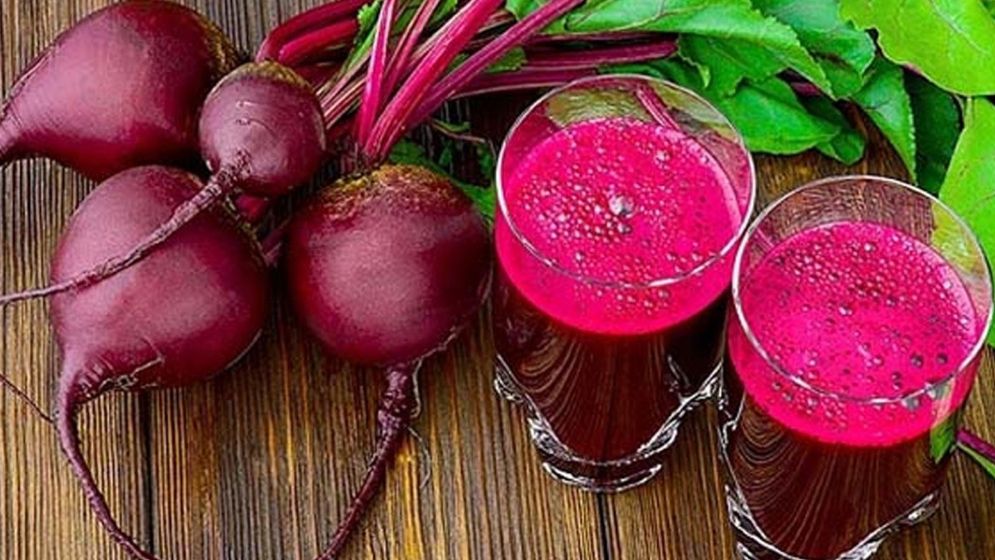As winter approaches, markets fill with vibrant pink and reddish beetroots, a colorful vegetable often overlooked despite its powerful health benefits. Increasingly popular among diet-conscious, beauty-aware, and health-focused individuals, beetroot is celebrated as a superfood loaded with vital nutrients and natural medicinal properties.
Here are some of the remarkable nutritional benefits and health advantages of including beetroot in your diet:
-
Combats Anemia and Boosts Blood Health
Beetroot is a rich source of iron and folate, essential for producing healthy hemoglobin. This makes it an excellent dietary addition for those suffering from anemia or low blood count, helping to ease fatigue and improve oxygen transport within the body. -
Lowers High Blood Pressure Naturally
High blood pressure patients benefit greatly from beetroot due to its high nitrate content. Nitrates convert into nitric oxide, which relaxes and dilates blood vessels, thereby reducing blood pressure and enhancing circulation. Additionally, beetroot helps regulate blood sugar levels, supporting metabolic health. -
Supports Weight Management
With a high dietary fiber content, beetroot helps suppress appetite, reduce cravings, and promote healthy digestion, all of which aid in weight control. Fiber also facilitates the reduction of body fat, making beetroot a natural ally in managing a healthy weight. -
Improves Digestion and Relieves Constipation
Beetroot’s abundant fiber content supports regular bowel movements and alleviates constipation. It also aids in managing various digestive complexities, promoting a smoother and healthier digestive tract. -
Reduces Bad Cholesterol and Supports Heart Health
Regular consumption of beetroot lowers LDL (bad cholesterol) levels and helps maintain healthy cholesterol balance, reducing risks associated with cardiovascular diseases.
-
Detoxifies the Liver
Betaine, a compound found in beetroot, prevents fat accumulation in the liver and helps detoxify the body, enhancing metabolic efficiency and overall energy. -
Protects Eye Health with Antioxidants
Beetroot contains lutein, a potent antioxidant linked to reducing the risk of eye diseases. Its phytochemicals strengthen both eye health and surrounding nerve tissues, promoting better vision and ocular health. -
Enhances Brain Function
By improving blood circulation to the brain, beetroot enhances mental performance, cognitive ability, and focus. Its anti-inflammatory components also help manage diseases caused by inflammation. -
Acts as a Natural Anti-Aging Food
The nutrients in beetroot promote youthful skin by combating wrinkles and slowing down skin aging. Its antioxidants help maintain skin elasticity and glow, making it popular in beauty diets. -
Boosts Gut Health
Beetroot fosters the growth of beneficial bacteria in the intestines, enhancing immunity by preventing harmful pathogens from affecting the body.
How to Incorporate Beetroot in Your Diet
You can enjoy beetroot raw or cooked. Raw beetroot works wonderfully in salads or juiced alone or with vegetables like carrots, cauliflower, broccoli, and cabbage for nutrient-packed drinks. Cooked beetroot can be included in mixed vegetable dishes, soups, or purees.
It’s also great for kids as a syrup or milkshake ingredient. For those with a sweet tooth, beetroot can be used in desserts such as halwa or cakes, offering a healthy twist to sweet treats.
Who Should Limit or Avoid Beetroot?
Even healthy foods can have adverse effects if consumed excessively, so it’s essential to practice moderation:
-
Diabetics should be cautious due to beetroot’s high glycemic index, risking rapid blood sugar spikes.
-
Individuals with kidney stones or high creatinine levels should avoid beetroot as it contains high oxalate levels which may worsen kidney issues.
-
People prone to allergic reactions (skin rashes, itching, or burning sensations) should refrain from beetroot consumption.
Conclusion
Beetroot is a nutrient-dense superfood offering powerful benefits for blood health, heart function, weight management, and overall well-being. Incorporate beetroot into your diet responsibly, and consult healthcare professionals if you have specific medical conditions. Embracing this vibrant vegetable can lead you towards a healthier, more energized lifestyle.







